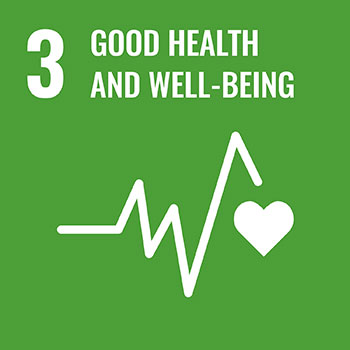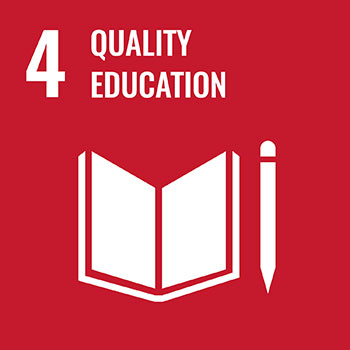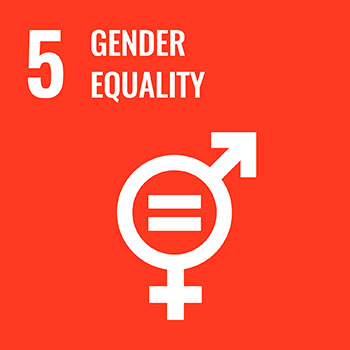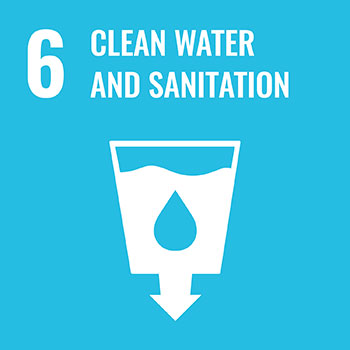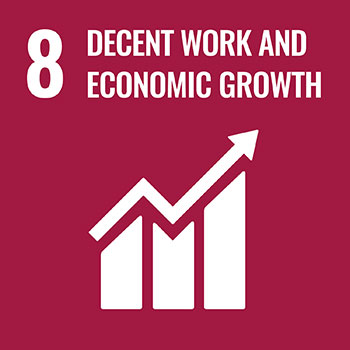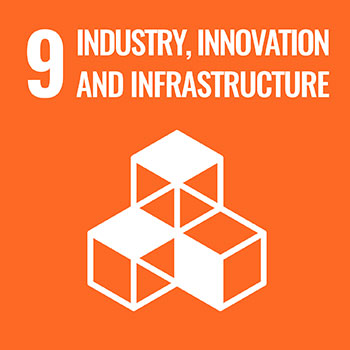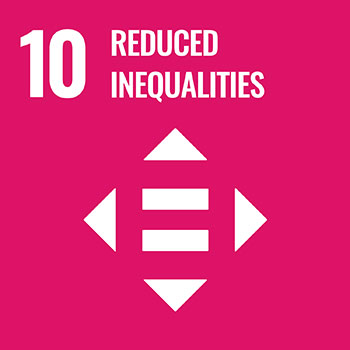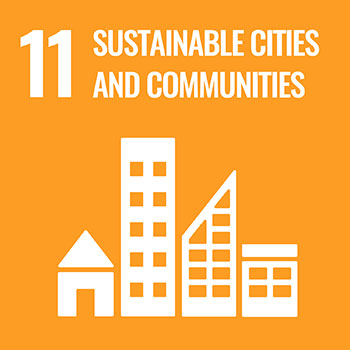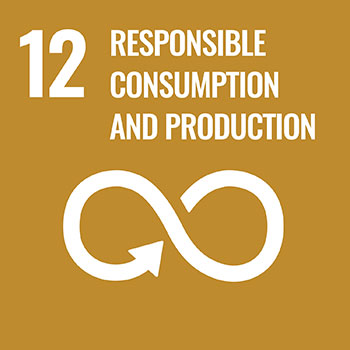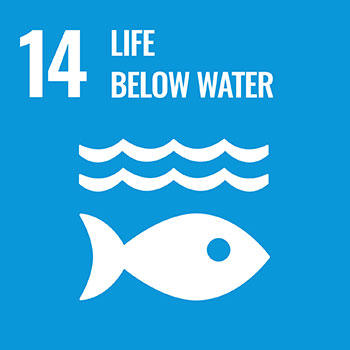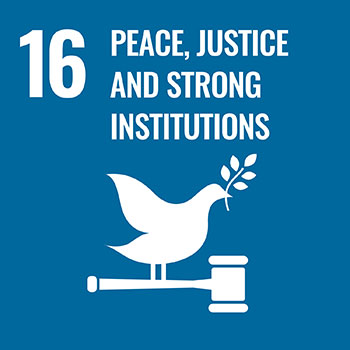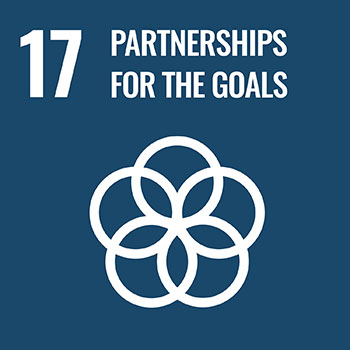Search for academic programs, residence, tours and events and more.
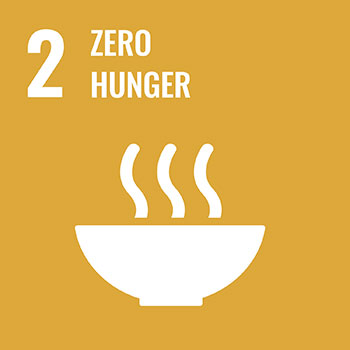
End hunger, achieve food security and improved nutrition, and promote sustainable agriculture.
Through research, community engagement, sustainable food practices, academic programs, global outreach and advocacy, Wilfrid Laurier University demonstrates our commitment to a world where everyone has access to nutritious and sustainable food sources.
The work that Laurier completed in 2023 to advance SDG 2.
Since 1998, Empty Bowls has raised awareness about hunger in Waterloo Region and has provided over 1.4 million meals for people in need. Laurier hosted the 25th annual event, organized by Laurier's Robert Langen Art Gallery and Waterloo Potters’ Workshop, to raise money for The Food Bank of Waterloo Region. For every ticket sold this year, The Food Bank can provide 100 healthy meals for the more than 58,600 individuals in Waterloo Region who depend on food assistance programs.
Across Canada, people are feeling the impacts of higher food prices and the rising cost of living. Laurier’s campus communities are no exception. Students who are experiencing food insecurity can access a range of supports and resources, all at little or no cost.
Alison Blay-Palmer, professor of Geography and Environmental Studies and the UNESCO Chair on Food, Biodiversity and Sustainability Studies, was awarded a Partnership Grant of nearly $2.5 million from the Social Sciences and Humanities Research Council of Canada. Together with 35 partner organizations across four continents, she is leading the FLAGship (Food, Learning and Growing) Partnership to support and inspire resilient regional food systems.
Rising grocery bills, a lack of affordable housing, crippling debt, geopolitical uncertainty, supply chain issues and general inflation are hindering many Canadians — including some in Waterloo Region — in search of healthy, affordable and sustainable food. At the Lazaridis School of Business and Economics at Laurier, exemplary students and faculty are leveraging their knowledge, academic training, professional networks and fundraising abilities to promote food security in Waterloo, the Laurier student community, remote Northern communities and beyond.
Laurier research centres advancing SDG 2.
The Laurier Centre for Sustainable Food Systems (LCSFS) connects researchers and community partners engaged in sustainable food systems change. It creates opportunities for citizens, practitioners, policy-makers, private enterprise and academics to work together to imagine and foster food systems that are fair, healthy, ecologically regenerative, culturally appropriate, prosperous and inclusive. Using food as a lever for positive change, the LCSFS enables meaningful collaboration among people across institutions, sectors and disciplines to support community-driven research, innovative knowledge sharing, and the development of community resources and sustainable food system policy.
Laurier initiatives in 2023 that advanced SDG 2.
Laurier is in full compliance with Ontario Regulation 102/94, which mandates measurement of food waste through waste audits and waste reduction work plans for educational institutions. The regulation is part of Ontario’s broader environmental initiatives aimed at reducing waste generation and promoting sustainable waste management practices. Laurier regularly conducts detailed waste audits across its food services, identifying opportunities to minimize waste and divert materials from landfills through composting and other environmentally responsible methods. Laurier's external waste management provider measures organic food waste and reports that measurement monthly to the instution. In 2023, approximately 14mt of organic food waste was produced across our campuses.
The university’s comprehensive waste reduction work plans reflect its commitment to environmental stewardship and sustainability, aligning with both provincial requirements and Laurier’s broader campus sustainability goals as outlined in its Sustainability Action Plan.
Laurier recognises that students should be able to focus on their studies and having the best student experience without having to worry about food insecurity. The university offers food insecurity and hunger support services, resources and programming to help students and staff thrive, including:
To support a healthy lifestyle on campus, Laurier has introduced sustainable practices and standards to ensure students have access to ethically sourced, locally grown and low-impact options at all campus food service locations. Introducing sustainable options into our food system can help reduce waste, produce fewer transportation emissions, support local community groups, and provide fair wages for marginalized farmers. Examples of sustainable food initiatives on campus include:
Laurier offers a range of healthy and affordable food options to all members of our campus community at all food locations. Dedicated chefs and dietitians are available help take the mystery out of healthy eating and are available to accommodate dietary needs in a personalized, sensitive manner.
Laurier has a range of dining options which offer healthy, fresh and nutritious foods and is committed to accommodating allergies or food intolerances (soy, eggs, nuts, dairy, seafood, wheat), vegetarian, vegan, no gluten, halal and prescribed diets. For enhanced convenience, Laurier offers a variety of meal plans available to staff, faculty and students. For those struggling with food insecurity, Laurier offers a number of programs which provide affordable or free food, including: Students' Union Food Bank; Weekly Distro; Food Justice Garden project and the Mini Market.
Laurier is committed to supporting the sustainable production of foods by providing knowledge and skills to farmers and food producers.
Since 2010, Laurier has maintained a unique and productive research partnership with the Government of the Northwest Territories. The partnership, which was expanded and extended to 2030, has brought new research expertise and training opportunities to the Northwest Territories (NWT) and strong community connections and research opportunities to Laurier scholars. The partnership supports a range of issues, including Northern agriculture. The Northern Food Systems Research Group (NFSRG) is composed of researchers, food producers, farmers, students and community practitioners engaged in participatory action research in the NWT. The NFSRG works collaboratively with partners on community-defined and led projects that build more resilient Northern food systems. Projects include:
Additionally, Laurier hosts the UNESCO Chair on Food, Biodiversity and Sustainability Studies, which serves as a platform for change, using food systems as a lens to work toward biodiversity protection, enhanced community resilience in the face of climate change, increased opportunities for marginalized groups, improved food security and enhanced community well-being. The chair's priorities include:
Finally, Laurier is home to the Centre for Sustainable Food Systems, which connects researchers and community partners engaged in sustainable food systems change. It creates opportunities for citizens, practitioners, farmers, policy-makers, private enterprise and academics to work together to imagine and foster food systems that are fair, healthy, ecologically regenerative, culturally appropriate, prosperous and inclusive.
Laurier is committed to advancing sustainable farming practice and supporting local food producers by providing both free and paid access to university facilities, in addition to the countless collaborative opportunities to work with researchers and students.
The Laurier Herbarium is a collection of pressed and dried plant specimens. Each herbarium specimen is accompanied by a label indicating its geographical origin, collection date and the ecology of the plant noted at the collection site. Herbaria provide a record of all the plant species discovered so far in the world, as well as of the particular plants growing in a certain geographical area. Accessing the herbarium can help farmers make informed choices that support crop health, pest management, and environmental sustainability.
Laurier’s Yellowknife research facilities are a vital hub for cold regions research and the university's longstanding partnership with the Government of the Northwest Territories. A year-round physical presence in the territorial capital allows Laurier researchers to meet regularly with partners, including those in Northern Food Systems Research Group, which is composed of researchers, food producers, farmers, students and community practitioners engaged in participatory action research in the NWT.
Laurier's research office in Yellowknife is home to several year-round staff. It provides temporary workspace to support research projects in the North. Laurier’s Enterprise Drive research facility is a comfortable, well-equipped hub for researchers and their partners working in the NWT. In addition to housing, guests can access cold and warm storage for research gear, parking, bicycles, fridge and freezer space for temporary sample storage, and a basic lab workspace. The research facility supports a range of research, including work dedicated to northern agriculture.
Laurier offers a number of events for local farmers and food producers to exchange knowledge and network.
In October 2023, the Laurier Centre for Sustainable Food Systems, the Government of Northwest Territories (NWT) and the Territorial Agrifood Association hosted the NWT Sustainable Agriculture Visioning Workshop. Participants represented commercial food production at different scales, community growers and farmers, food educators, non-governmental organizations and advocates, territorial policy officers and the Fort Smith Metis Development Corporation.
The core academic and partner team facilitated discussions about visions for the future of NWT food systems. Sessions included participatory exercises, expert presentations, field excursions and group discussions, as well as shared meals.
Central components of the vision included increasing local production while fostering reconciliation; inspiring and employing future land workers with secure livelihoods; and contributing to regional and national Net Zero targets while building healthy landscapes and protecting against socioecological shocks.
Other examples include:
This local sourcing strategy is flexible and responsive to seasonal availability, ensuring that ingredients are fresh and sustainable throughout the year. In addition to supporting local farmers, Laurier’s commitment extends to ethical sourcing practices, including fair trade and animal welfare standards, reinforcing the institution’s dedication to responsible and sustainable food systems.
Laurier's Policy 4.13 highlights that the university will seek to continuously improve its environmental performance in business operations, including by promoting and integrating sustainable food systems within campus operations by supporting local, organic and healthy options. Through Green Thread, our environmental sustainability platform, Laurier brings innovative and efficient solutions to life and passionately focuses on reducing the environmental impact within food service operations.
Discover how Laurier is contributing to United Nations Sustainable Development Goal targets.


